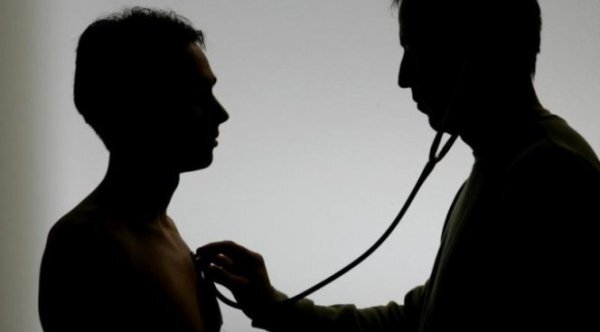Slovakia is facing a shortage of doctors and nurses. According to data from the Ministry of Health itself, there is a deficit of 3,500 doctors, and if we include those of retirement age, the number rises to 5,500. The number of missing nurses exceeds 15,000.
However, there are already foreign doctors and nurses living in Slovakia who would like to work in the medical field but struggle to meet the conditions required to practice their profession due to a complicated qualification recognition process. Although the system is formally the same as in other EU member states—since it follows a common directive—we wouldn’t be in Slovakia if we didn’t voluntarily make the process even more difficult. As a result, many of these medical professionals work in other fields that are not regulated, and mostly outside the healthcare sector.
In response to this situation, the University Hospital Bratislava (UNB), in cooperation with the Ministry of Health of the Slovak Republic, launched a pilot recruitment project earlier this year to attract support staff from Ukraine, aiming to bring in Ukrainian doctors. However, this is a state that has long failed to streamline the employment conditions for doctors on its territory and still cannot simplify the entry requirements for foreign doctors who are genuinely interested in working in Slovakia—at least not to the extent seen in neighboring countries.
On the Ukraine Pilot Project and the Institute of Temporary Professional Practice
The Ukraine pilot project is something that society largely overlooks. This may be because the Ukraine project is often mistakenly conflated with another recent development — the introduction of the Institute of Temporary Professional Practice, which is set to come into force in the form of a law starting in September 2019. According to the official narrative, this change is intended to help foreign doctors prepare for professional qualification exams. However, in practice, it currently seems to allow them to work as orderlies, since there is an urgent need to bring support healthcare staff into the system to prevent its collapse.
Information about the Ukraine project — a completely separate initiative by the Ministry of Health, targeted exclusively at Ukrainian citizens — is difficult to find.
Yet Ukraine itself is already suffering from a shortage of doctors, many of whom have left the country, and now Slovakia is actively trying to attract them. According to various analyses, Ukraine is short of between 60,000 and 100,000 doctors. However, salaries there are 5 to 10 times lower than in Slovakia, which is why some Ukrainian doctors do not mind accepting lower-level support roles here. Despite this, recruitment efforts are being launched on the territory of Ukraine, while no such opportunity is communicated to Ukrainians who are already living in Slovakia. It might also be worth considering outreach to doctors of other nationalities who are already residing in Slovakia, but who currently work in different sectors simply because they are not permitted to work in healthcare.
Foreign Doctors in Slovakia – Case Examples
I know many stories of foreign doctors living in Slovakia, and they can generally be divided into four groups:
Solutions
It makes no sense to leave the hidden potential of foreign doctors living in Slovakia untapped. These doctors have begun to organize themselves within non-regulated professions, and with minimal effort, at least communication with them is possible. A little information and support from authorities would be enough to start improving the situation.
The process of diploma recognition should be transferred to medical faculties and universities, similar to how it's handled in Slovakia for non-regulated professions — and in the Czech Republic, this approach is applied even for doctors. Are we somehow worse? The Ministry of Education could serve as a second-level authority, responsible, for instance, for appeals. This would allow schools to become more familiar with their foreign colleagues and perhaps encourage more communication. As it stands now, the Ministry of Education is just an unnecessary bureaucratic layer in the recognition process.
All current projects by the Ministry of Health are focused on attracting young foreign doctors who are willing to accept roles equivalent to those of students, interns, or the least-qualified staff. But perhaps it's time to stop degrading foreign doctors and stop luring them only into the least desirable positions. Let’s not be so modest — it’s time to stop being a cheap assembly workshop and start attracting highly qualified foreigners from abroad.
Top-level foreign doctors could be exactly the place to start.
However, there are already foreign doctors and nurses living in Slovakia who would like to work in the medical field but struggle to meet the conditions required to practice their profession due to a complicated qualification recognition process. Although the system is formally the same as in other EU member states—since it follows a common directive—we wouldn’t be in Slovakia if we didn’t voluntarily make the process even more difficult. As a result, many of these medical professionals work in other fields that are not regulated, and mostly outside the healthcare sector.
In response to this situation, the University Hospital Bratislava (UNB), in cooperation with the Ministry of Health of the Slovak Republic, launched a pilot recruitment project earlier this year to attract support staff from Ukraine, aiming to bring in Ukrainian doctors. However, this is a state that has long failed to streamline the employment conditions for doctors on its territory and still cannot simplify the entry requirements for foreign doctors who are genuinely interested in working in Slovakia—at least not to the extent seen in neighboring countries.
On the Ukraine Pilot Project and the Institute of Temporary Professional Practice
The Ukraine pilot project is something that society largely overlooks. This may be because the Ukraine project is often mistakenly conflated with another recent development — the introduction of the Institute of Temporary Professional Practice, which is set to come into force in the form of a law starting in September 2019. According to the official narrative, this change is intended to help foreign doctors prepare for professional qualification exams. However, in practice, it currently seems to allow them to work as orderlies, since there is an urgent need to bring support healthcare staff into the system to prevent its collapse.
Information about the Ukraine project — a completely separate initiative by the Ministry of Health, targeted exclusively at Ukrainian citizens — is difficult to find.
Yet Ukraine itself is already suffering from a shortage of doctors, many of whom have left the country, and now Slovakia is actively trying to attract them. According to various analyses, Ukraine is short of between 60,000 and 100,000 doctors. However, salaries there are 5 to 10 times lower than in Slovakia, which is why some Ukrainian doctors do not mind accepting lower-level support roles here. Despite this, recruitment efforts are being launched on the territory of Ukraine, while no such opportunity is communicated to Ukrainians who are already living in Slovakia. It might also be worth considering outreach to doctors of other nationalities who are already residing in Slovakia, but who currently work in different sectors simply because they are not permitted to work in healthcare.
Foreign Doctors in Slovakia – Case Examples
I know many stories of foreign doctors living in Slovakia, and they can generally be divided into four groups:
- Young doctors, mostly from Ukraine, who are not opposed to working and are willing to accept even positions as orderlies. Some of them have completed specialized studies, such as in surgery or urology. They see this work as a way to earn a living. Some believe it’s only a temporary situation and that they will eventually pass the qualification exams — but others think the situation cannot be changed.
- Doctors working in unrelated professions, such as massage therapists (common in places like Piešťany), cosmetologists, or entrepreneurs in completely different fields. For example, a pediatric surgeon from Uzbekistan who now works in construction, or a female doctor who runs a dance school.
- Doctors who refuse to work in any field other than what they studied and have chosen to stay at home instead. I know of cases involving both wives and husbands who are not the breadwinners of their families because they do not wish to take on other types of work.
- Highly respected specialists in their home countries, who do not want to do what they perceive as inferior work in Slovakia. Some tried to cooperate with Slovak universities but were not given the opportunity. They continue their medical practice by traveling back to their home country for scheduled procedures. This attitude is completely understandable — it’s like asking an IT expert to clean offices at a tech company.
Solutions
It makes no sense to leave the hidden potential of foreign doctors living in Slovakia untapped. These doctors have begun to organize themselves within non-regulated professions, and with minimal effort, at least communication with them is possible. A little information and support from authorities would be enough to start improving the situation.
The process of diploma recognition should be transferred to medical faculties and universities, similar to how it's handled in Slovakia for non-regulated professions — and in the Czech Republic, this approach is applied even for doctors. Are we somehow worse? The Ministry of Education could serve as a second-level authority, responsible, for instance, for appeals. This would allow schools to become more familiar with their foreign colleagues and perhaps encourage more communication. As it stands now, the Ministry of Education is just an unnecessary bureaucratic layer in the recognition process.
All current projects by the Ministry of Health are focused on attracting young foreign doctors who are willing to accept roles equivalent to those of students, interns, or the least-qualified staff. But perhaps it's time to stop degrading foreign doctors and stop luring them only into the least desirable positions. Let’s not be so modest — it’s time to stop being a cheap assembly workshop and start attracting highly qualified foreigners from abroad.
Top-level foreign doctors could be exactly the place to start.
Current articles by Alona Kurotova are also available at dennikn.sk





